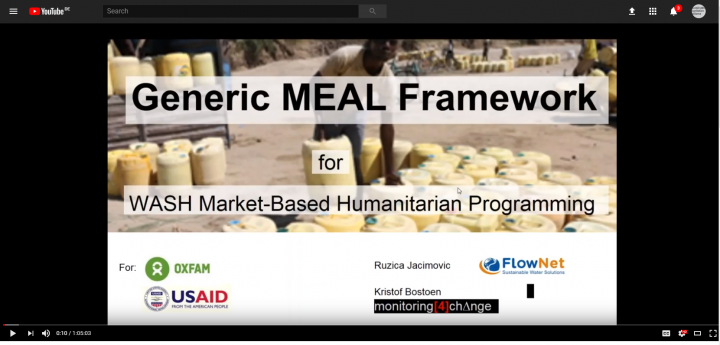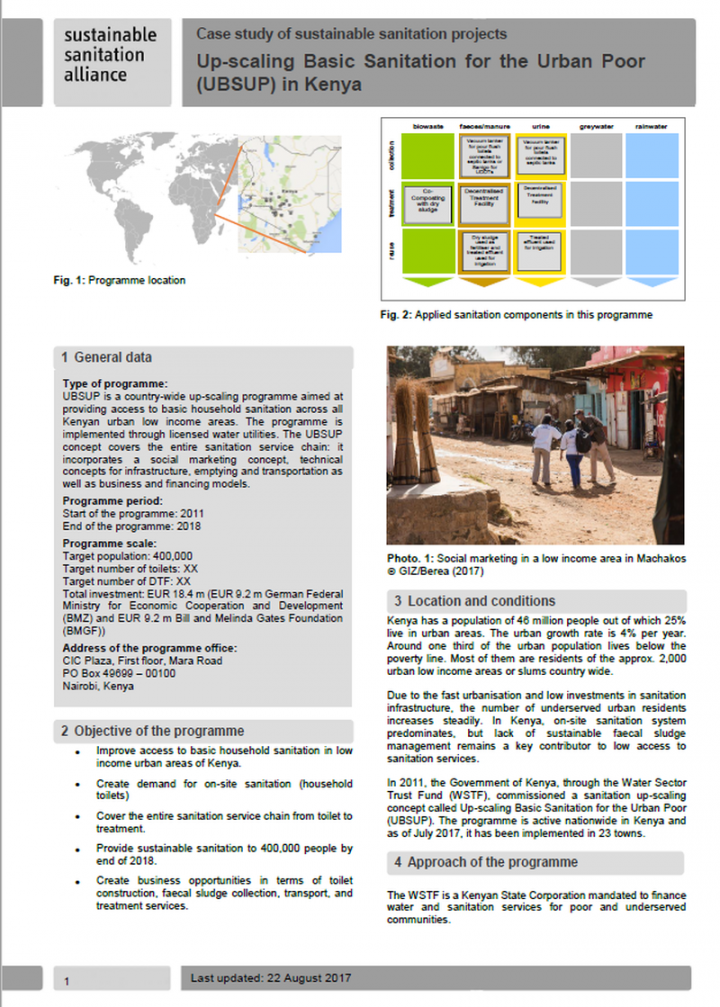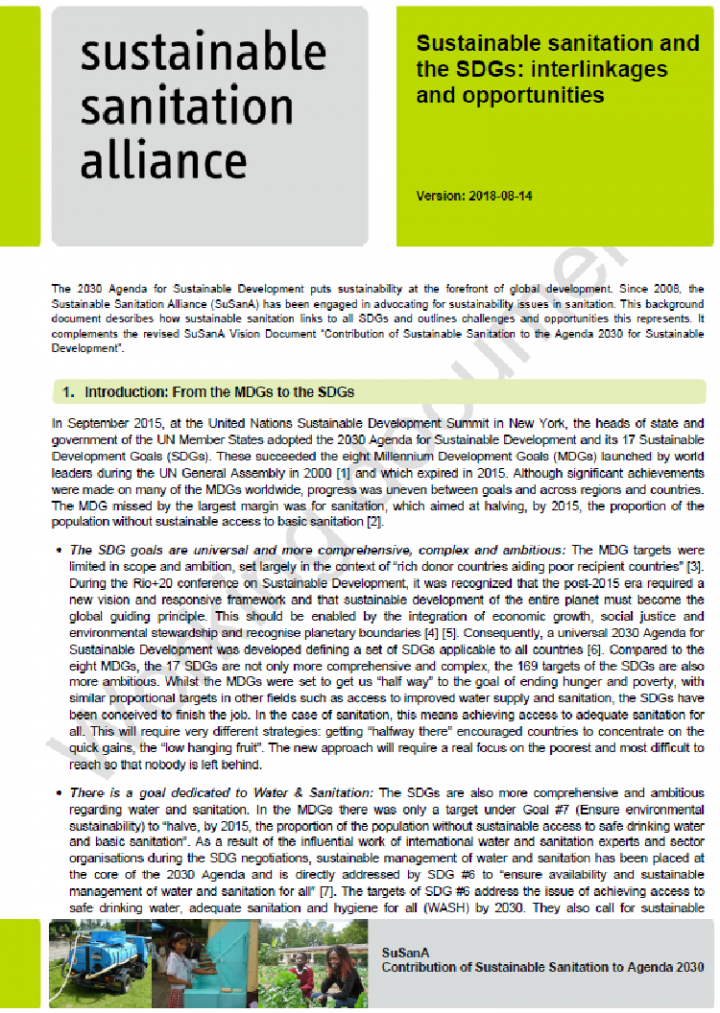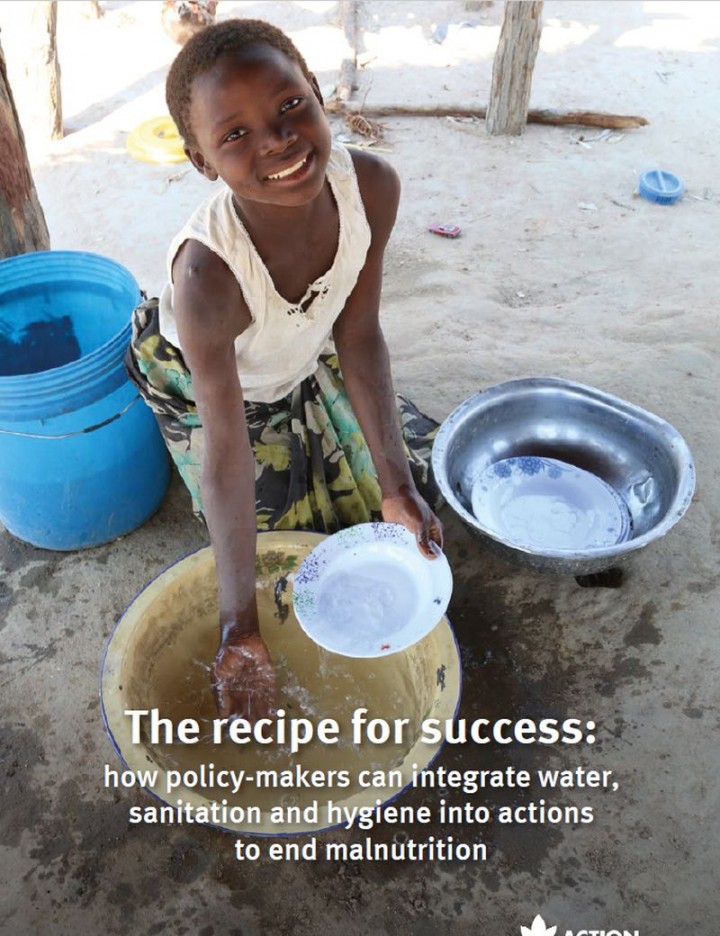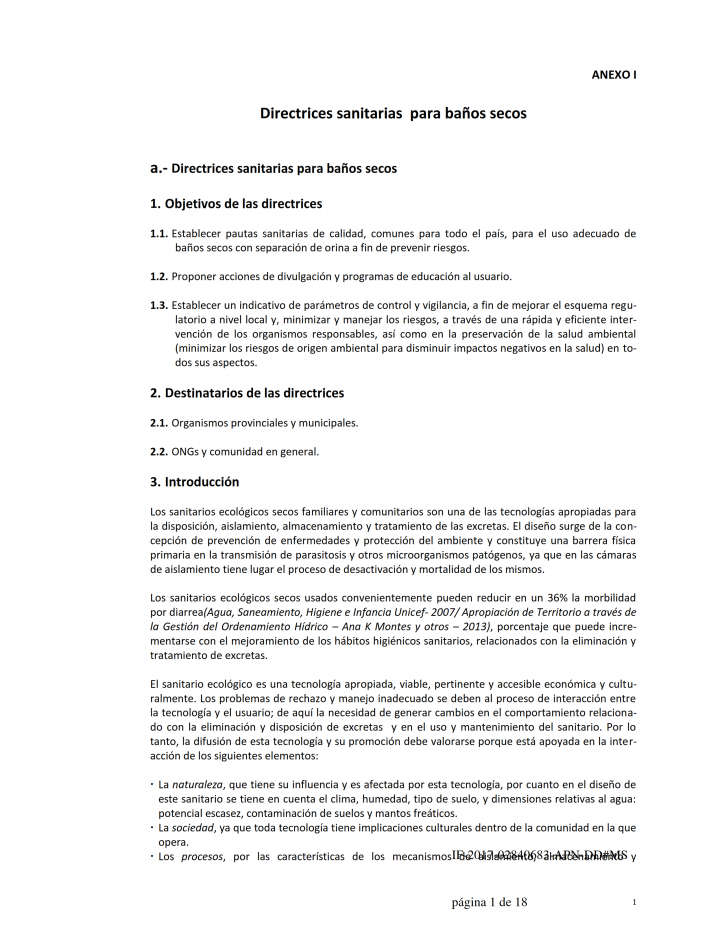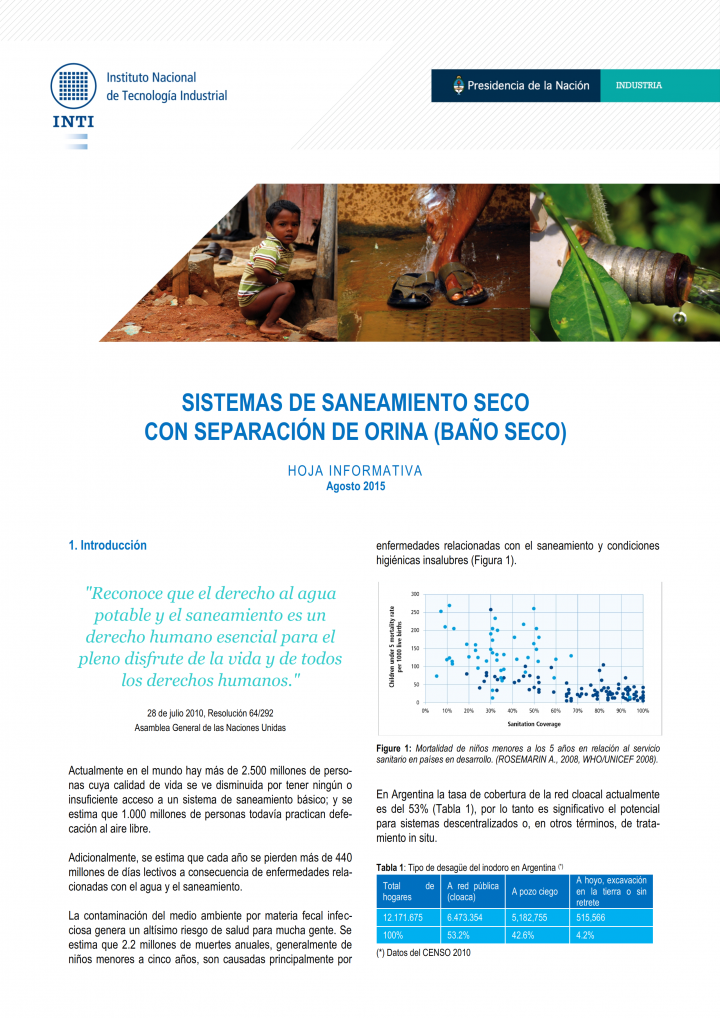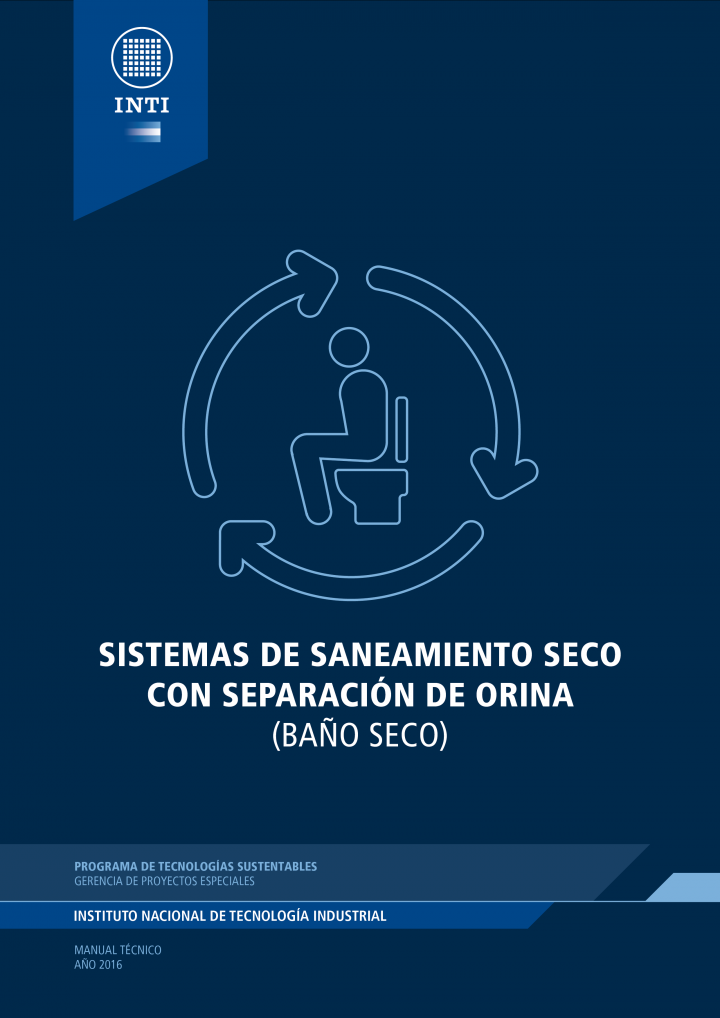Parkinson, P., Bostoen, K., Jacimovic, R. (2017) Webinar on Monitoring and evaluation of market based humanitarian WASH interventions (11 October 2017)
Monitoring, evaluation, accountability and learning was identified as a gap by the Global WaSH Cluster’s technical working group in WASH markets. More evidence is needed to prove or disprove assumptions and perceptions around effectiveness and efficiency of programme delivery and contribution of the responses towards market recovery. In order to enable comparative analysis between different modalities of MBP against traditional responses, with funding from OFDA, Oxfam […]
Blackett, I. (2017) SFD: The Indonesian Case
An excreta flow diagram (also often described as a shit flow diagram or SFD) is a tool to readily understand and visually communicate how excreta flows through a city or town. Based on the contributing population it shows how excreta is or is not contained as it moves from defecation to treatment then disposal or end-use, and whether the flows are safe or unsafely contained. This […]
Ohler, S. (2017) SuSanA 10th Anniversary Report
On the 17th of January 2017, the Sustainable Sanitation Alliance (SuSanA) celebrated its 10th anniversary at the GIZ headquarters in Eschborn, Germany. The celebration took place under the theme "10 years SuSanA: How the changed sanitation paradigm contributes to the Sustainable Development Goals". During the event, SuSanA’s achievements, milestones, and impact in the sanitation sector were reflected upon. Moreover, SuSanA’s future was discussed as well as […]
SuSanA (2017) SuSanA Joint Roadmap 2015 to 2018 – Towards More Sustainable Sanitation Systems Version 1.3
The Sustainable Sanitation Alliance (SuSanA) joint roadmap 2015 to 2018 was drafted to organise the platform to respond more effectively to the challenges of the Millennium Development Goals (MDG) and the Post-2015 Development Agenda. The SuSanA strategy process was initiated following a plenary meeting at the Stockholm World Water Week 2012. On initiative of the secretariat, a core group and key stakeholder meeting was convened in […]
Rohilla, S., Luthra, B., Padhi, S.K., Yadav, A., Varadharajan, A., (2017) SFD Report - Bansberia, India
Bansberia is a town in the Hooghly district of West Bengal, India. Bansberia Municipality was the nerve center of “Saptagram”, a port city, famous for its inland and foreign trades with Europe since 17th Century. Bansberia has a population of 1,03,799. The population density of the city is 11,445 persons per sq.km, which is high in comparison to the population density of West Bengal, i.e. […]
Jha, P. K. (2017) Toilet linked biogas slurry applied to crops Report on physicochemical and microbiological analyses of slurry from toilet linked biogas plants
Toilet linked biogas plants have been implemented at some scale in different villages in some districts of Gujarat by WASTE, Netherlands and FINISH Society, India. In an earlier study, the performance of such toilet linked biogas plants was compared to non- toilet linked biogas plants. The economic benefits of application of toilet linked biogas plant slurry on agricultural lands for different crops and vegetables, however, […]
Jha, P. K. (2014) Bio-gas yields from Toilet Linked Biogas Plants in Nausari / Valsad District, Gujarat, India
Biogas from cow dung with or without toilet linkage is in practice for over 3 decades in India. It is supported by the Ministry of New & Renewable Energy, Government of India and State Governments. However, the toilet linked biogas plant programme could not get required momentum, even though it has several advantages. To overcome the problem, the additional economic importance / advantages of toilet linked biogas plants over non-toilet […]
Dubois, A. (2017) Up-scaling Basic Sanitation for the Urban Poor (UBSUP) in Kenya
This case study describes the Upscaling Basic Sanitation for the Urban Poor (UBSUP) programme, which is a country-wide up-scaling intervention aimed at providing access to basic household sanitation in urban low income areas of Kenya. UBSUP is anchored at the Water Sector Trust Fund with technical support from GIZ and funding from the Bill and Melinda Gates Foundation and the German Government through the German […]
SuSanA (2018) Sustainable sanitation and the SDGs: interlinkages and opportunities
The 2030 Agenda for Sustainable Development puts sustainability at the forefront of global development. Since 2008, the Sustainable Sanitation Alliance (SuSanA) has been engaged in advocating for sustainability issues in sanitation. This background document describes how sustainable sanitation links to all SDGs and outlines challenges and opportunities this represents. It complements the revised SuSanA Vision Document “Contribution of Sustainable Sanitation to the Agenda 2030 for […]
WASTE Netherlands, IFS (2017) Beyond development aid: Sanitation financing & revenue models in reuse (human) waste Conference Proceedings
The Institute for Fiscal Studies, in collaboration with WASTE, organized the conference “Beyond Development Aid: Sanitation Financing & Revenue Models in Reuse (human) Waste” in The Hague, Netherlands, the 15th of May 2017. This conference brought together from different parts of the world; academics, practicioners and policymakers with the aim to generate knowledge regarding sanitation financing and Revenue models on sludge reuse.
Durrans, S., Jones, D., Pando, N.U., Wilson-Jones, M. (2017) The recipe for success How policy-makers can integrate water, sanitation and hygiene into actions to end malnutrition
In this report the authors analyse the approaches governments and donors are taking to cross-integrate nutrition and water, sanitation and hygiene (WASH) within their nutrition and WASH national policies and plans. The report aims to provide a ‘recipe’, or toolkit, to stimulate debate and discussion of the options and opportunities to bring together WASH and nutrition policies and programmes.
Ministerio de Salud de la Argentina (2017) Directrices sanitarias para baños secos (in Spanish) Sanitary guidelines for dry toilets
Establecer pautas sanitarias de calidad, comunes para todo el país, para el uso adecuado de baños secos con separación de orina a fin de prevenir riesgos.
Hock, D. (2015) Sistemas de Saneamiento Seco con Separación de Orina (Baño Seco) - Hoja Informativa (in Spanish) Dry Sanitation Systems with Urin Separation (Dry Bath)- Fact Sheet
Promover una alternativa válida de un sistema de saneamiento sustentable con separación de orina en zonas sin acceso directo a la cloaca y/o en zonas secas, alejadas, periurbanas o rurales que como máximo cuentan con un sistema básico rudimentario, como por ejemplo un pozo negro o una letrina
Dabbah, F. / Escudero, H. / Fernandez Curutchet, M. / Hock, D. (2016) Sistemas de Saneamiento Seco con Separación de Orina (Baño Seco) - Manual técnico (in Spanish) Dry Sanitation Systems with Urin Separation (Dry Bath)- Technical Manual
El presente documento trata un sistema de saneamiento diseñado específicamente para el manejo de excrementos secos, llamado baño seco con separación de orina. Este es un sistema de saneamiento aplicable a cualquier tipo de instalación (hogareña, industrial, pública, comunitaria, etc.). Las pautas de diseño funcionales que lo componen son las siguientes: separación desde el origen de la materia fecal y la orina, la operación sin […]
Hussein Abdul Razzaq al-Jazairi (1990) Waste Stabilization Ponds
Kimotics Consulting Office (1992) Construction Supervision Manual for Engineers and Technicians Vol.2
Ibrahim Hilal Al-Hattab et al (1998) Egyptian Code for Design and Implementation of Pipelines for Drinking Water and Sewage Networks, Sixth Edition (in Arabic)
Ahmed Jadallah Miqdad (2015) Biogas is an environmentally friendly energy and hope for future
Diaa El Din Salem et al (2008) Efficiency assessment of the wastewater treatment plant in Najaf (in Arabic)
Foster, S., Garduno, H., Kemper, K., Ghodeif, K. (2006) Groundwater quality protection, Definition of strategy and priorities setting (in Arabic)
